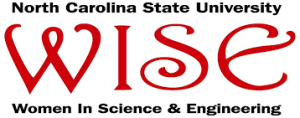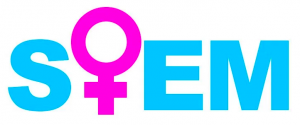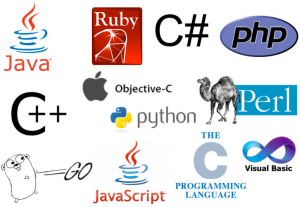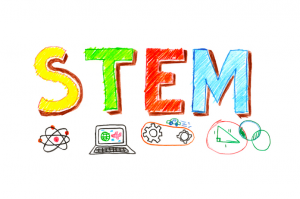Introduction
As the saying goes, sometimes it takes a village to complete a task.The WISE (Women In Science and Engineering) Village at NC State is very familiar with this idea of collaboration and teamwork. The WISE Village was established as a learning and living community for female freshmen and sophomores in STEM majors at NC State University.
The WISE Village, which is centered  in Lee Residence Hall, offers a variety of beneficial and unique resources for members. First and foremost, living in WISE Village allows for members to be surrounded by peers who have similar goals, interests, and classes at NC State. The community works to make the transition from high school to college smooth for first-year students, as well as decrease the stress and anxiety that may come with being a college student in general. Individual tutoring sessions, advising advice, and social events are just a few of the opportunities that WISE members are offered throughout the year. Overall, WISE works to help women establish themselves on campus as students of NC State and create connections with other women majoring in fields of science, math, or engineering.
in Lee Residence Hall, offers a variety of beneficial and unique resources for members. First and foremost, living in WISE Village allows for members to be surrounded by peers who have similar goals, interests, and classes at NC State. The community works to make the transition from high school to college smooth for first-year students, as well as decrease the stress and anxiety that may come with being a college student in general. Individual tutoring sessions, advising advice, and social events are just a few of the opportunities that WISE members are offered throughout the year. Overall, WISE works to help women establish themselves on campus as students of NC State and create connections with other women majoring in fields of science, math, or engineering.
As a resident of Lee Residence Hall, I am interested in learning more about WISE Village and exploring how it operates as a discourse community. Throughout this analysis, I will identify how WISE fits into Swales’ “Six Characteristics of a Discourse Community” through research, observation, and an interview with a member of the village. I chose to interview Gianna Mastrandrea, a freshman majoring in Computer Science at NC State and a member of WISE Village. On April 1st, 2019, I met with Gianna inside her dorm room in Lee Residence Hall. Gianna explained the details of what it means to be a member of WISE Village and how the community has shaped her college experience as a whole. On the same day, I also conducted an observation in the WISE Village Lounge on the first floor of Lee Residence Hall. During my observation, I gathered a lot of data on how members of WISE interact with each other, the language they use to communicate, and much more.
Synthesis
- “A discourse community has a broadly agreed set of common public goals” (Swales, 220).
 WISE Village at NC State clearly defines their missions and goals through the actions and messages they share with members of the WISE community. As stated on their official University website, the WISE Program intends to help students grow personally by developing leadership skills, exploring career goals, and maintaining a balance between personal and academic life on campus. On a broader scale, WISE Village wants to “…increase the retention rates of women who in enroll in science and engineering at NC State…”, as well as “…increase the graduation rates of women…” in these same fields (Mission and Goals, n.d.). According to the article “Successful programs for undergraduate women in science and engineering: “adapting” versus “adopting” the institutional environment”, research proved that failure to obtain degrees in STEM-related fields at universities is often due to failure at the institutional level, rather than individual circumstances (Fox, Sonnert & Nikiforova, 2009). By establishing a village that has a strong presence on campus for women in STEM, the institution is supporting collaboration, support, and integration among science and engineering students, which ultimately leads to greater student success.
WISE Village at NC State clearly defines their missions and goals through the actions and messages they share with members of the WISE community. As stated on their official University website, the WISE Program intends to help students grow personally by developing leadership skills, exploring career goals, and maintaining a balance between personal and academic life on campus. On a broader scale, WISE Village wants to “…increase the retention rates of women who in enroll in science and engineering at NC State…”, as well as “…increase the graduation rates of women…” in these same fields (Mission and Goals, n.d.). According to the article “Successful programs for undergraduate women in science and engineering: “adapting” versus “adopting” the institutional environment”, research proved that failure to obtain degrees in STEM-related fields at universities is often due to failure at the institutional level, rather than individual circumstances (Fox, Sonnert & Nikiforova, 2009). By establishing a village that has a strong presence on campus for women in STEM, the institution is supporting collaboration, support, and integration among science and engineering students, which ultimately leads to greater student success.
- “A discourse community has mechanisms of intercommunication among its members” (Swales, 221).
There are several means of communication among members of WISE through in-person and digital interactions. Examples of these in-person interactions include monthly WISE meetings, social events, and socialization in common areas. I witnessed communication among members in the lounge during my observation. The laid back, comfortable atmosphere of the WISE lounge makes it a perfect place for members to socialize and talk with friends, as I saw many groups do. Tutoring sessions are planned through communication between tutors and members, as well as mentor meetings. Electronically, GroupMe is a popular platform used to relay information between students, as well as emails from WISE event coordinators that keep members up to date on what is happening.
- “A discourse community uses its participatory mechanisms primarily to provide information and feedback” (Swales, 221).
Mentors will commonly use these communicative mechanisms to reach out to their mentees. Gianna Mastrandrea (2019) mentioned that she has conversations with her mentor several times a week over text, whether it be to “schedule a tutoring session or send an invitation to meet up for coffee”. Other forms of feedback may include emails regarding the number of people who attended the mandatory monthly WISE meetings or the number of volunteers needed for a certain WISE social event.
- “A discourse community utilizes and hence possesses one or more genres in the communicative furtherance of its aims” (Swales, 221).
Other genres of text that WISE Village regularly uses to communicate with members is the paper calendar that is handed out at the beginning of each month at the community meetings. These calendars outline special events that are occurring throughout the month, as well as various deadlines that members must meet. Posters are placed throughout the residence hall and inside of the lounge that advertise different opportunities available. During my observation, I actually noticed a member of WISE hanging up a poster for a volunteering event on the lobby door. These posters are periodically updated and can be found on nearly every floor of the residence hall on doors, elevators, and inside of the stairwell. Lastly, another way information is spread among WISE Village is through social media. WISE Village has a Facebook page that shares the same type of information, as well as an Instagram and Twitter page.
- “In addition to owning genres, a discourse community has acquired some specific lexis” (Swales, 222).
Although all members of WISE Village communicate using terminology within the realm of science and  engineering, there is a lot of variety in the languages used due to the different majors and concentrations within these broad fields. Gianna Mastrandrea, as mentioned, is a Computer Science major. She explained that the vocabulary she often uses to communicate is specific to her major. For example, she communicates with other Computer Science majors regarding their work using different Programming Languages, such as C++, Java, Java Script, Action Script, and more. These languages have distinct words and rules that are used to instruct computers and computing devices (What are Computer Programming Languages? n.d.) Specific vocabulary words that often come up in discussion include “RAM”, “bug”, “code”, and “CPU” (Mastrandrea, 2019).
engineering, there is a lot of variety in the languages used due to the different majors and concentrations within these broad fields. Gianna Mastrandrea, as mentioned, is a Computer Science major. She explained that the vocabulary she often uses to communicate is specific to her major. For example, she communicates with other Computer Science majors regarding their work using different Programming Languages, such as C++, Java, Java Script, Action Script, and more. These languages have distinct words and rules that are used to instruct computers and computing devices (What are Computer Programming Languages? n.d.) Specific vocabulary words that often come up in discussion include “RAM”, “bug”, “code”, and “CPU” (Mastrandrea, 2019).
- “A discourse community has a threshold level of members with a suitable degree of relevant content and discoursal expertise” (Swales, 222).
WISE Village accepts incoming freshmen and rising sophomores who apply to the village by the specified deadline in the spring semester. Upon acceptance to WISE, members will be assigned a peer mentor who will provide support and guidance throughout the academic year and beyond. These mentors are important members of the village who are trained in depth to learn how to manage their position of authority. Research by Dennehy and Dasgupta (2017) supports the idea that female engineering students benefit greatly having female mentors, as it is proven that peer support fosters motivation and confidence in students throughout the school year. Students may choose to stay in WISE Village for either their freshman or sophomore year, while others may choose to stay for both. WISE Village only allows students to be active members as freshmen and sophomore. Once members reach the end of sophomore year, they have the opportunity to apply to become a WISE mentor for rising members of WISE or they can graduate from the program entirely.
Conclusion
From my research, it is evident that WISE Village at NC State operates as a discourse community. The village undeniably meets each of Swales’ 6 characteristics. Throughout this experience, I learned a lot about WISE Village and how it ultimately works towards achieving its bigger mission— increasing the number of women in STEM-related fields. It is obvious that WISE Village utilizes many methods of communication among members, ranging from digital means to physical forms. There are various languages that members use to communicate that are often specific to different STEM majors. Lastly, WISE works to maintain strong relationships between students and mentors in order to increase student success on all levels.
In a larger social context, the skills WISE instills in students can be seen outside of the realm of NC State. The values, positive self-images, and confidence that is established in women through this program are likely to stick with them as they enter the workforce. With both science and engineering being heavily male dominated fields, it is important to recognize that WISE Village’s efforts to increase women in STEM actively defies the traditional societal construct of men being superior scientists and mathematicians. WISE is contributing to making STEM fields more culturally inclusive and diverse, while still encouraging the global development of math and science. Undoubtedly, WISE Village is a high functioning, well-established community that is actively shaping the future female scientists and engineers of the world.

Appendix B: Interview
Works Cited
Dennehy, T. C., & Dasgupta, N. (2017). Female peer mentors early in college increase women’s positive academic experiences and retention in engineering. Proceedings of the National Academy of Sciences of the United States of America, 114(23), 5964–5969.
Fox, M. F., Sonnert, G., & Nikiforova, I. (2009). Successful programs for undergraduate women in science and engineering: “adapting” versus “adopting” the institutional environment. Research in Higher Education, 50(4), 333.
Mastrandrea, G. (2019, April 1). Personal Interview.
Mission and Goals. (n.d.). Retrieved from
Swales, J. (1990). The concept of discourse community. Genre Analysis: English in academia and research settings. Boston: Cambridge UP.
What are Computer Programming Languages? (n.d.). Retrieved from
https://www.computerscience.org/resources/computer-programming-languages/
Author’s Note:
Throughout this assignment, I learned so much about WISE Village at NC State. My research allowed me to engage with the community and understand their overarching missions and goals as a learning village on State’s campus. I got to experience first hand how members interact, communicate, and live their daily lives as female college students in STEM. On a broader scale, this assignment introduced me to the idea of a discourse community. Before, I didn’t know what a discourse community was or how it was relevant in society. I’m glad I got to learn more about discourse communities and had the opportunity to apply this knowledge to a real example in my own life. In terms of digitizing this piece, I worked to make sure the graphics were pertinent to the content they appeared beside. The hyperlinks allow for easier access to the things I discuss in the essay, such as WISE Village’s homepage or direct links to their various social media accounts.
Comments by knshagen